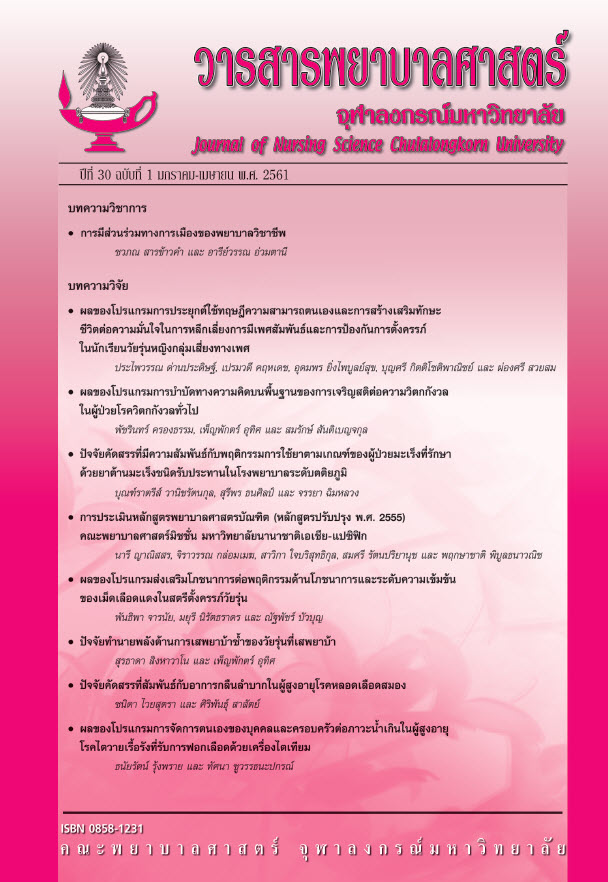ผลของโปรแกรมส่งเสริมโภชนาการต่อพฤติกรรมด้านโภชนาการและระดับความเข้มข้นของเม็ดเลือดแดงในสตรีตั้งครรภ์วัยรุ่น
คำสำคัญ:
โปรแกรมส่งเสริมโภชนาการ; พฤติกรรมด้านโภชนาการ ; สตรีตั้งครรภ์วัยรุ่นบทคัดย่อ
Purpose: The study aimed to determine the effects of a nutrition promotion program on the nutritional health behavior and hematocrit levels of adolescent pregnant women. Design: Quasi-experimental research.
Methods: The sample consisted of 60 pregnant women aged younger than 20 years in Chonburi province in Thailand. They were assigned to the experimental group or the control group, 30 in each group. The experimental group participated in a nutrition promotion program. The program was designed based on the Pender Health Promotion Model, which focused on the perceived benefits of action and perceived self-efficacy. The control group received routine nursing care. Data were collected using the nutritional health behavior questionnaire. All research instruments had content validity. The Cronbach’s alpha coefficient of reliability for the questionnaire was .80. Descriptive statistics and t-tests were used for data analysis.
Findings: Mean scores of nutritional health behavior and the hematocrit levels in the experimental group were significantly higher than before receiving the program (p < .05). Mean scores of nutritional health behavior and the hematocrit levels in the experimental group were significantly higher after receiving the program compared to those who received regular nursing care (p < .05).
Conclusion: Nurses who take care of adolescent pregnant women can apply the nutrition promotion program as an appropriate nursing guideline for enhancing health-promoting behaviors and preventing iron-deficiency anemia.



